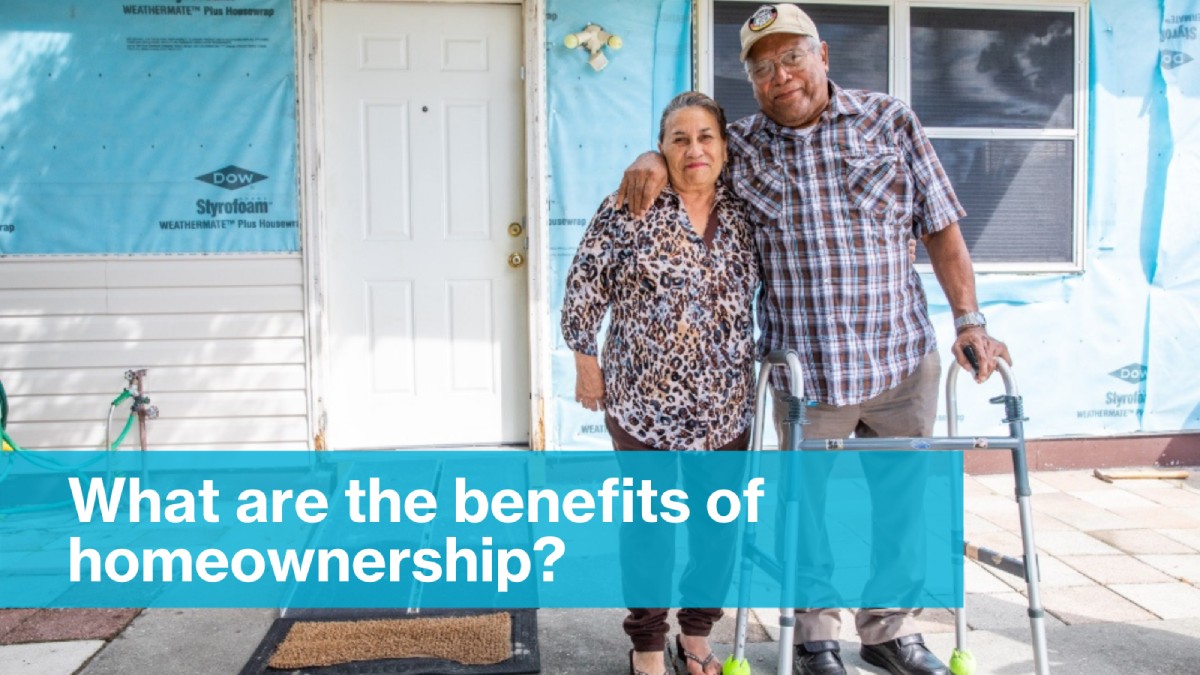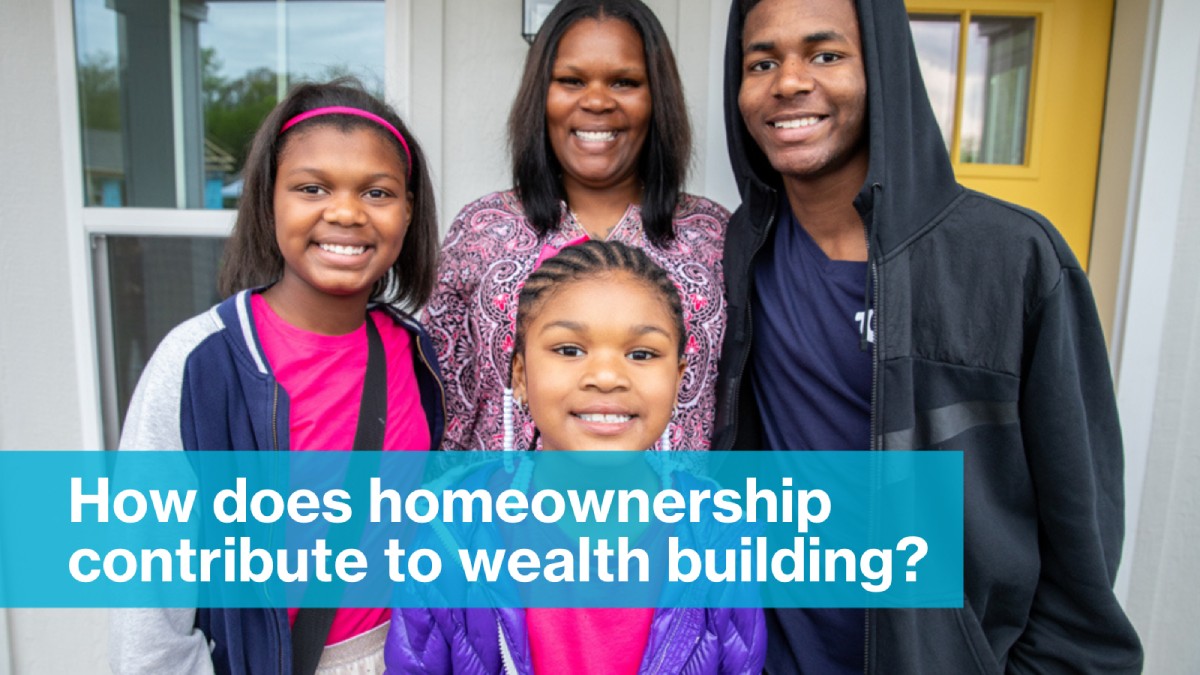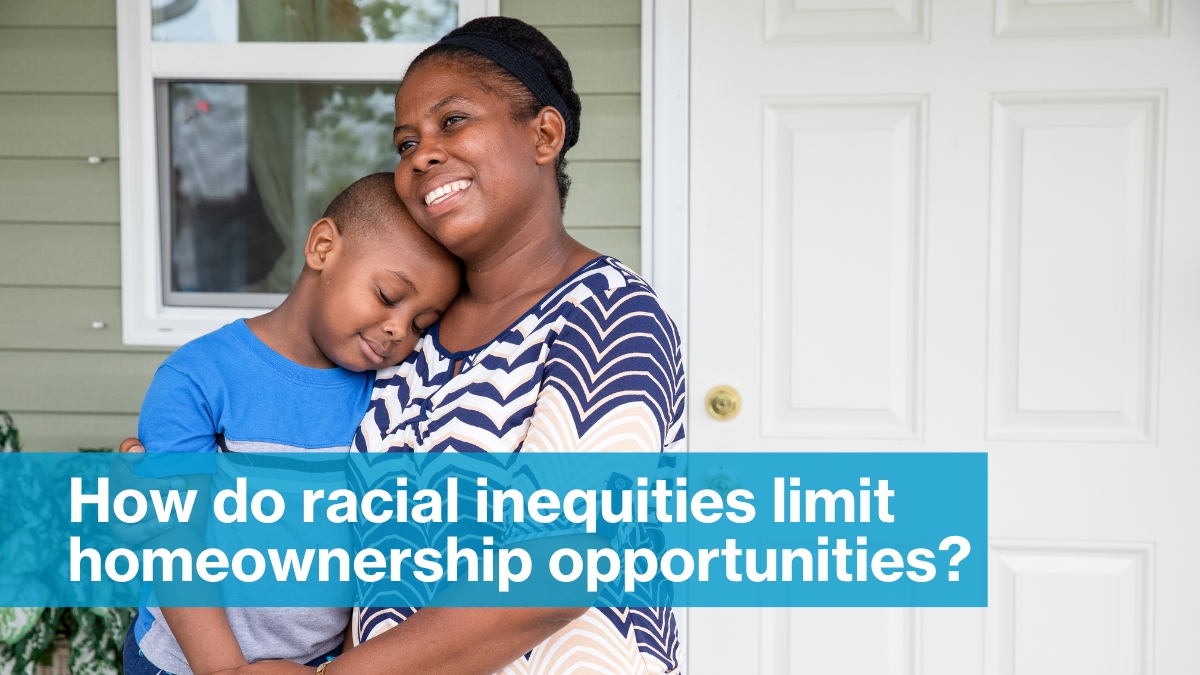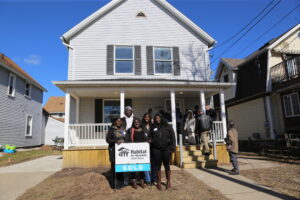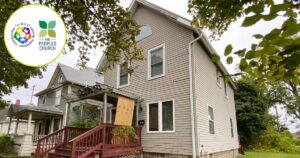Strong and stable homes help build strong and stable communities. We invite you to dive deeper into why home matters by reading the following evidence brief series. This series is a multi-part exploration of existing research on the impact of homeownership. It highlights specific ways that Habitat for Humanity’s work contributes to improving outcomes for families and communities.
Homeownership can transform lives. It creates long-lasting and life-changing impact on families and communities, from providing a source of wealth and asset-building to influencing health and educational outcomes and contributing to positive community development. The first step in bringing homeownership to more families, however, is to understand who currently has access to homeownership and what factors play a role.
Improving affordable homeownership leads to numerous outcomes that extend beyond the house.
These include greater economic stability, access to quality education, increased civic and social engagement, better health, and a reduced environmental footprint. This evidence brief provides an overview of how families can prosper with greater access to decent, affordable housing.
Low-income households and households of color have limited access to homeownership because of barriers such as limited supply of affordable housing, restricted access to credit, and systemic inequities. For those low-income households and households of color, homeownership can be a catalyst to wealth building. Home equity accounts for over half their net wealth, but these gains from homeownership vary by income, gender and race/ethnicity.
Black and Hispanic/Latino households face unique barriers to homeownership that prevent access to the beneficial outcomes associated with homeownership, such as wealth building, improved health and higher educational attainment. Historically, structural and institutional obstacles faced by racial and ethnic minorities compounded over time to produce these inequities.

